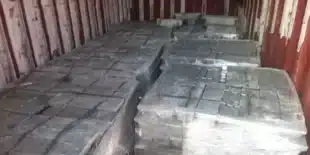On Sunday, a Lebanese family gathering was shattered by an Israeli airstrike that leveled their building.
Sixty-year-old Hecham al-Baba was visiting his sister, Donize, who insisted he stay for lunch and even encouraged him to invite an old friend over for coffee. Shortly after he entered the bathroom to freshen up, an explosion shook the building, sending al-Baba to the floor as he struggled to breathe. Moments later, a second blast hit, collapsing the ceiling and trapping him under the rubble. The building, located in Ain el Delb near Sidon, had toppled down a hillside, trapping 17 families and leaving at least 70 dead and 60 injured.
Israel reported that the strike was aimed at a Hezbollah commander and claimed the building was a Hezbollah site. However, it has not been confirmed if any of the residents had connections to Hezbollah. A photo circulated online showing one of the building’s residents wearing military fatigues, suggesting possible ties to the group, but residents denied any knowledge of Hezbollah members among them.
This incident reflects Israel’s intensified campaign, which has targeted both Gaza and Hezbollah in Lebanon following the October 7 attack by Hamas. Since late September, Israeli strikes have killed over 2,000 people in Lebanon, including many civilians, in what has been a campaign to dismantle Hezbollah’s presence in the area. Rights groups have raised concerns about the high number of civilian casualties, especially in strikes on homes without clear warnings.
Trapped under debris for hours, al-Baba listened in helpless silence, realizing his sister’s family was likely gone. When rescuers finally reached him, they extracted him through a narrow hole. His sister, her husband, and two of their children did not survive.
For other residents, such as retired officer Abdul-Hamid Ramadan, who lost his wife and daughter, the grief is immense. “I lost my wife, my partner, my joy,” Ramadan shared. Families buried the victims in unmarked graves nearby.
Israeli strikes, often aimed at possible Hezbollah affiliates, have left Lebanese citizens fearful of hosting anyone who might attract Israeli fire. Human Rights Watch highlighted concerns about entire buildings being destroyed in densely populated areas, exacerbating risks to civilians. Despite evacuations being issued for some areas, many strikes come without warning.
Reflecting on the tragedy, al-Baba, now coping with both physical and emotional wounds, vowed he would wear black to mourn his loss. “There will be no peace,” he lamented, looking back on his shattered family and the ongoing conflicts in Lebanon and Gaza.


